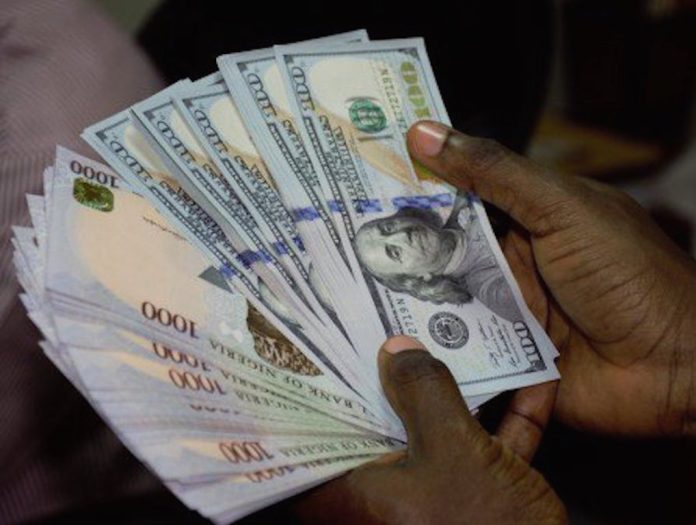A global rating agency, Fitch Ratings, has projected that the Nigerian naira will end the year at N1,450 to a dollar.
Gaimin Nonyane, director, Middle-East and Africa sovereigns, at Fitch Ratings, made this known during a post-sovereign rating webinar on Tuesday focused on Nigeria and Egypt.
Nonyane said despite the volatility experienced by the naira since its floating in June 2023, there are expectations that the fluctuation will reduce by the third quarter (Q3) of 2024.
“The naira is still finding its feet. It is still in price discovery mode. So we would expect a lot of volatility in the near term,” she said.
“However, as I just mentioned, there is the expectation of multilateral donor funding coming in Q3 this year in addition to improved oil receipts. So that should help to reduce volatility somewhat by Q3 this year.
“We project that naira will average about N1,200/dollar this year and end the year around N1450/dollar. And in terms of next year, we see a gradual depreciation but it also depends largely on the foreign exchange reforms momentum.
“So, this is our baseline scenario on the basis that the momentum continues at the current pace.”
Speaking further, Nonyane said the agency sees a path to a sustainable recovery in “CBN’s foreign exchange position and sustained current account surpluses”.
“Currently, the current account surplus is low, below one percent of the GDP, although they are experiencing some surpluses, it is still not significant in addition to that if we see a sustained reduction in inflation and greater stability in the foreign exchange markets, and one key factor is the tax revenue,” she said.
“We need to see stronger mobilisation of domestic non-oil revenue. So all of these combined collectively, it’s not one or the other, which could potentially lead to an upgrade.
“Low tax revenue base has contributed to the government’s very high interest-to-revenue ratio which currently stands at 38 percent and that is quite high.
“This is about four times more of the B rating median and forms a key rating consideration.”
Fitch Ratings also projected recovery in the oil sector in the short term to support the FX demands.
“However, we do expect a recovery in the oil sector to support the current account over the short term. We also expect the oil refining capacity to increase over the short term as the Dangote plant ramps up capacity,” the director said.
“We expect the PMS to come on stream later this year or early next year and this would help to reduce transport costs and lower refined oil imports which should help to ease foreign exchange demands.”
Nonyane said Nigeria’s gross foreign exchange reserves will rise despite falling from its peak in March at about $34 billion and currently standing around $32.7 billion — with recent gains from oil receipts eroded by repayment of existing debt obligations.
This, she said, is also due to the Central Bank of Nigeria’s (CBN) repaid draw down on foreign exchange swaps and foreign exchange sales to bureau de change (BDCs) to support the naira.
“In terms of the outlook, we project foreign exchange reserves to rise modestly by year-end and this would be as a result of a recovery in oil receipts, multilateral funding and potentially commercial borrowing,” Nonyane said.
“This would equate to about 4.2 months of current external payments which are still in line with our B-medium but following the CBN’s recent publication of its financial statement, we still estimate that more than 30 percent of the gross reserves are from bank swaps, this highlights an external risk.
“Although we do expect the majority of the swaps to continue to be rolled over, providing space to navigate some challenges in external debt servicing.
“External debt servicing is expected to rise by about $4.8 billion in 2024 and a further $5.2 billion in 2025 and this includes amortisation and the $1.1 billion Eurobond which would be due in November 2025.”
Nonyane also said sustaining the foreign exchange momentum is key to boosting the country’s foreign direct investment (FDI).

